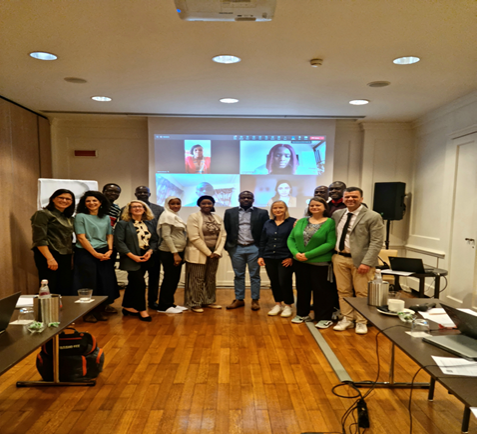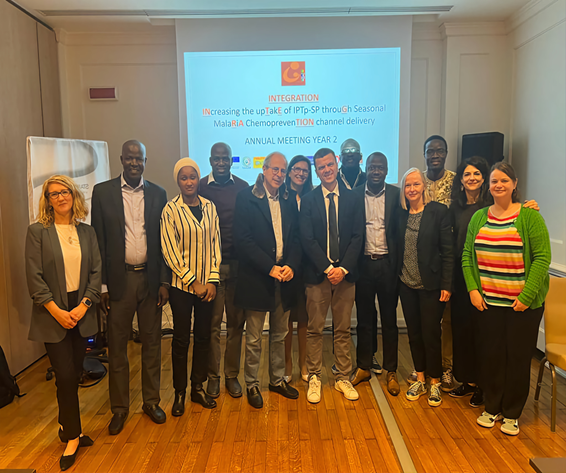Annual Project Meeting Y2


The INTEGRATION consortium held its annual meeting of the second year of the project on 6th and 7th March 2023 in Rome (Italy), both in person and virtually. The event took place at “Hôtel Star Michelangelo. The meeting was organized under the leadership of Prof Kassoum Kayentao of the Université des Sciences, des Techniques et des Technologies de Bamako (USTTB), Bamako, Mali, and regrouped two African countries (Mali, Burkina Faso) and three European countries (Italia, United Kingdom, and France).
The meeting opened with welcome notes from Prof. Kassoum Kayentao, who is also the Project Coordinator, and Dario Scaramuzzi (Work Package Leader on Communication and Dissemination activities) and counted with a plenary talk from Prof. Andrea Crisanti (Full Professor of molecular parasitology at Imperial College in London – Department of Life Sciences and Senate of the Italian Republic) on scientific advances in the manipulation of the natural selection of mosquitoes to disrupt the reproductive capacity of malaria vectors.
At the introductory session, Prof. Kayentao gave an overview of the project and highlighted the main aim of the study: evaluate if the addition of Intermittent Preventive Treatment in Pregnant women with sulfadoxine-pyrimethamine (IPTp-SP) delivered through Seasonal Malaria Chemoprevention (SMC) facilities increases the coverage of IPTp-SP and enhances antenatal clinic (ANC) attendance among pregnant women in Burkina-Faso and Mali.
The objectives targeted during this meeting were:
- Review progress of Implementation trials in Mali and Burkina Faso and ensure standardisation of methods across sites.
- Review progress of Master & PhD student projects and mentorship arrangements
- Agree on publication strategy for all work package results.
- Discuss the plan for the collection and analysis of project data in conjunction with the project milestones and deliverables.
- Define a strategy for the completion of delayed activities during a no cost extension period.
After the introductory session, each work package leader gave an update on the status of the project activities.
Furthermore, preliminary results on IPTp and SMC baseline Household Survey (HHS) in Mali and Burkina Faso were presented.
Next, PhD students presented their thesis outlines to assess the systems’ effectiveness of IPTp-SP delivery through ANC+SMC as well as in health economics aspects.
At the end, all partners agreed on the need for close community sensitization to ensure further successful implementation of the intervention.